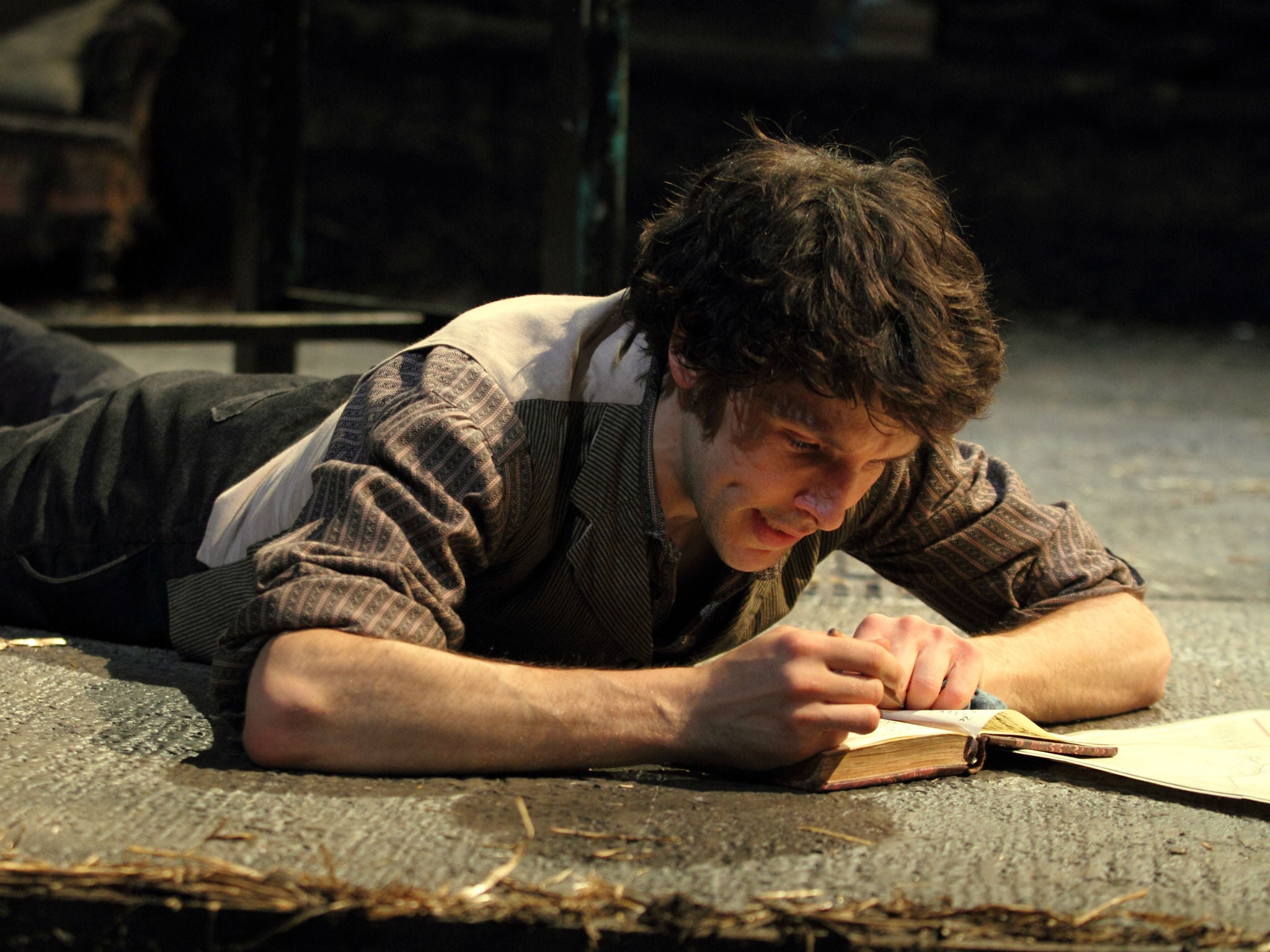Translations, National Theatre, London, review: A rich production of Brian Friel's classic
This magnificent revival stretches out in the Olivier, but still finds the subtleties within the play

Your support helps us to tell the story
From reproductive rights to climate change to Big Tech, The Independent is on the ground when the story is developing. Whether it's investigating the financials of Elon Musk's pro-Trump PAC or producing our latest documentary, 'The A Word', which shines a light on the American women fighting for reproductive rights, we know how important it is to parse out the facts from the messaging.
At such a critical moment in US history, we need reporters on the ground. Your donation allows us to keep sending journalists to speak to both sides of the story.
The Independent is trusted by Americans across the entire political spectrum. And unlike many other quality news outlets, we choose not to lock Americans out of our reporting and analysis with paywalls. We believe quality journalism should be available to everyone, paid for by those who can afford it.
Your support makes all the difference.The depth and richness of this 1980 classic by Brian Friel are sounded beautifully in Ian Rickson’s magnificent revival in the Olivier.
It’s 1833 and the Redcoats have arrived to map County Donegal for the Ordnance Survey and to translate the Gaelic place names into standardised English. The setting is a hedge school run by learned old soak Hugh (played a wonderful dilapidated grandeur by Ciaran Hinds) who is forever demanding the Latin or Greek derivation of words from his ragbag of adult students. This type of informal, voluntary instruction was under threat at the time from another form of standardisation: the introduction of national schools where attendance would be compulsory and the lessons conducted in English.
Ironically, it is Hugh’s own prodigal younger son, Owen, who makes a surprise return to his home town as interpreter, on the pay roll, for the soldiers. The play is about the clash between two languages and cultures and the partly comic device (though one that points to the tragic outcome) is that Friel writes both sides in English so we hear the detail of their mutual incomprehension and the diplomacy in Owen’s renderings into Gaelic of Captain Lancey’s condescending communications.
In a superbly judged performance as Owen, Colin Morgan makes the character’s gradual shift from shiny, semi-citified eagerness to gnawing disillusion a quietly harrowing one.
Though Friel once claimed that this was “a play about language and only about language”, it is of course intensely political in its depiction of language as an instrument of colonisation. Not that it could ever be simplified into a set of slogans. It’s meditation on the link between language and identity is too subtle for that and prevents it from ever becoming a lament for a lost idyll.
Old Hugh concedes, using a map metaphor, that a civilisation can be imprisoned in a linguistic contour which no longer matches the landscape of fact. By the end, he has finally agreed to teach English to Maire (excellent Judith Roddy), the young woman who fiercely believes that the old language is a barrier to progress.
A doomed romance flowers between this latter and the idealistic young Lieutenant Yolland whose slightly silly but sincere crush on Donegal is winningly conveyed by Adetomiwa Edun. Neither speaks the other’s language and the love scene where they reach for each other by intoning a litany of the the Gaelic place names they know is deliciously funny and heart-stoppingly lyrical as performed here. But the consequences are disastrous.
Rickson and his designer Rae Smith brilliantly use the Olivier to give a mythic dimension to the proceedings, the hedge farm building cut into vast landscape of boggy earth. A tall staircase seems to chime with the fabric of the National itself, as if concretely connecting the past with the present – as does stunning momentary effect at the end.
Invidious to single someone out from the ensemble, but Dermot Crowley is perfection as eccentric, Greek-reading filthy old Jack, who’s so at home in the world of Homer and so lonely in this one, he’s consented to marry Pallas Athene next Christmas. Wedding a goddess might be considered well and truly “exogamous”, or outside the tribe, but there’d no translation problem.
With our anxieties over Brexit and borders, this is very pertinent time to revive the play and it’s wonderful to see and hear it stretch to its true magnitude in this venue.
Until 11 August (nationaltheatre.org.uk)
Join our commenting forum
Join thought-provoking conversations, follow other Independent readers and see their replies
Comments